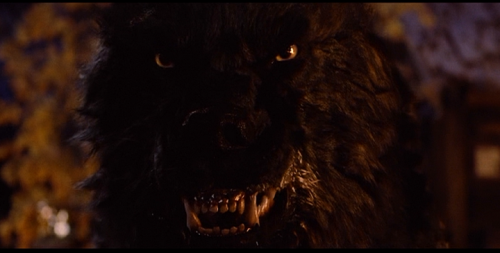Hiding Being a Werewolf
So, as we all know, werewolves are smart. And werewolves also stay smart, no matter what form they are currently taking.

We also know that it might be really hard to tell if someone is a werewolf, so they would be good at hiding among the general population. Why? Well, because, in folklore, there really is no way to tell if someone is a werewolf, unlike what pop culture would have you think.
Now we come to the question, then, of… did werewolves in folklore hide their lycanthropy?
Most pop culture comes with the notion that being a werewolf is inherently a really bad thing, because werewolves are generally considered evil monsters in pop culture today. And also because, again in pop culture today, lycanthropy is considered to be some kind of “disease,” more often than not.
In folklore, though, despite werewolves not being portrayed as evil monsters in the same ways as they are today (I have so many werewolf facts on this that it’s hard to link to them all every time – be sure to check the masterlist!), they were still certainly considered freaky, weird, and generally undesirable. You didn’t want to throw around the notion that you could/would turn into a wolf/wolf-man.
So the answer is… yes, even in folklore, a werewolf would often keep their lycanthropy hidden! But there were exceptions, and occasionally it even went over alright.
We see this in various stories, not least of which is Bisclavret, wherein the werewolf does not want to tell his wife he is a werewolf but ultimately does so since, well, she’s his wife. This happens in plenty of other “werewolf husband” stories, too. However, we also learn from these that some people (especially grateful kings) don’t really mind having a werewolf knight for a guardian.
We also see it in other places, especially in the medieval period, but also sometimes werewolves are pretty forthcoming in folklore, but it didn’t always get them friends.
In Greek and Roman tales, sometimes werewolves traveling with others would reveal it to their fellows and bring them back an animal to eat, for instance. This happened in a few different stories. Travelers would be hungry, need food, and one would be like “hey! I’m a werewolf, I’ll go get us something to eat.” Everyone was cool with that.
This didn’t always work out; in Niceros’s tale, he gets very freaked out and never wants to talk to the guy again, so you can see why lots of them would keep it secret.
Then there is the tale of the werewolves of Ossory, who tell the monk all about their lycanthropy because they are trusting him. Granted, they don’t share their names, but the old lady does show her face.
Generally, though, I’m going to go with a yes that most folklore werewolves also keep their werewolf status a secret. They will sneak out of their rooms in wolf form (like in some Chinese tales and plenty of European ones as well), they will run about at night, they will escape and hide their transformations from everyone and tell no one about it.